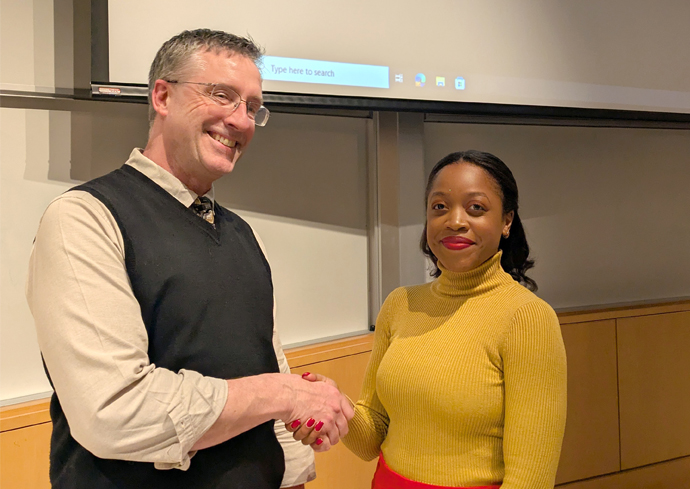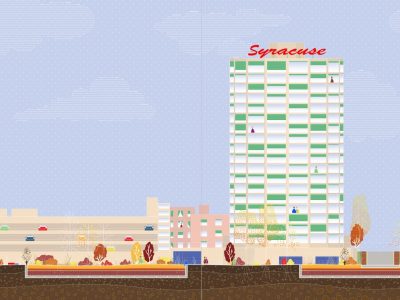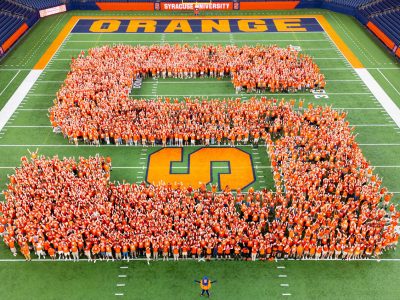Arts and Sciences Doctoral Student Wins at This Year’s Three-Minute Thesis Competition
Ten graduate students competed in this year’s Three-Minute Thesis (3MT) competition on April 4. The annual event, sponsored by the Graduate School, provides participants with the opportunity to share highlights of their research and scholarship in pithy, engaging presentations lasting no longer than three minutes.
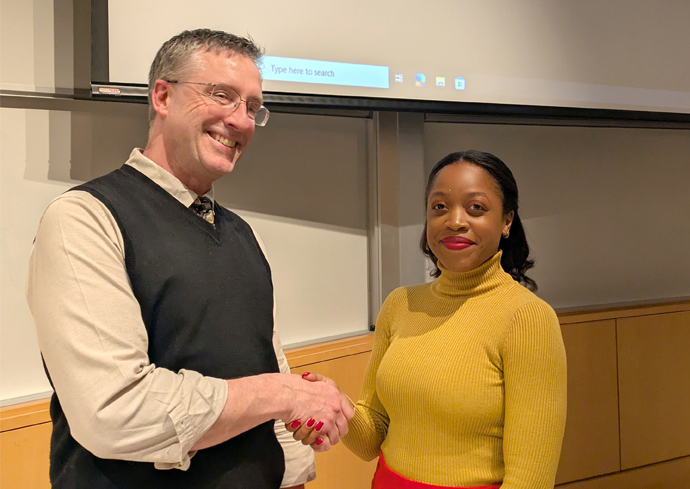
Jayda Felder, a doctoral student in social psychology at the College of Arts and Sciences, won the competition with her presentation, “The Predictive Value of Casual Dating Advice for Romantic Relationship Outcomes.” She received 16-inch MacBook Pro M4 and a one-year membership in the Society for the Teaching of Psychology, the professional organization of her choice.
“The cliché is that academic research is both impenetrable and pointless,” says Glenn Wright, executive director of professional and career development at the Graduate School. “The 3MT really challenges graduate students to tackle that perception head-on, explaining quickly and clearly what their research is and why it makes a difference. That’s a great skill when engaging the public, and highly useful in academia, too.”
The other 3MT contestants were:
- Nimisha Krishnan (Ph.D., physics, College of Arts and Sciences): “How Cells Move Cargo: Learning from Nature’s Tiny Transport System”
- Bramsh Khan (Ph.D., social science, Maxwell School): “Politics of Gendered Infrastructure Violence in Balochistan, Pakistan”
- Mary Theresa Pagan (Ph.D., sociology, Maxwell School): “Older Recent Widows and Physical Activity: A Qualitative Investigation of the Roles of Care Work and Social Support”
- Sarah Nahar (Ph.D., religion, Arts and Sciences): “Closing the Poop Loop: An Everyday Way to Heal the Planet”
- Ratnakshi Mandal (Ph.D., chemical engineering, College of Engineering and Computer Science): “Decoding Alzheimer’s: Putting Together the Puzzle of Memory Loss”
- Abigail Helen Long (Ph.D., composition and cultural rhetoric, Arts and Sciences) “‘Stuck’ Together: Identifying Writing Teachers’ Access Needs”
- Nghia Le Ba Thai (Ph.D., bioengineering, Engineering and Computer Science): “PorousX: A Novel Artificial Matrix for Treating Chronic Wounds”
- Paul Sagoe (Ph.D., biomedical engineering, Engineering and Computer Science): “Small but Mighty: Therapeutic Nanoparticles, the Tiny Heroes Fighting Arthritis”
- Qingyang Liu (Ph.D., human development and family science, Falk College of Sport and Human Dynamics): “When and Where to Invest: Early Material Hardship and Children’s Self-Regulation.”
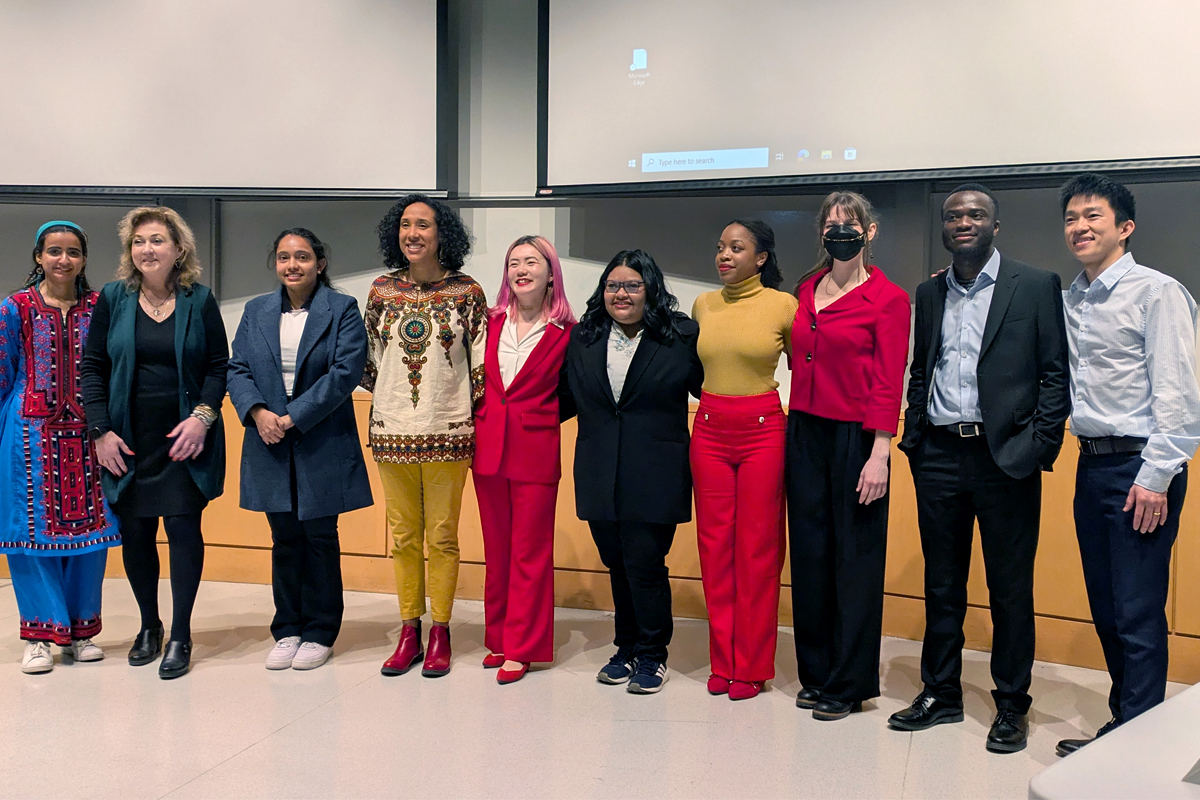
Wright moderated the event. Judges were Matthew Carr, chief financial officer at Manlius Pebble Hill School; Davoud Mozhdehi, associate professor of chemistry at the College of Arts and Sciences; and Sylvia Sierra, associate professor of communication and rhetorical studies in the College of Visual and Performing Arts.
Three Minute Thesis was first developed at the University of Queensland in Australia and is now held at colleges and universities around the world.
